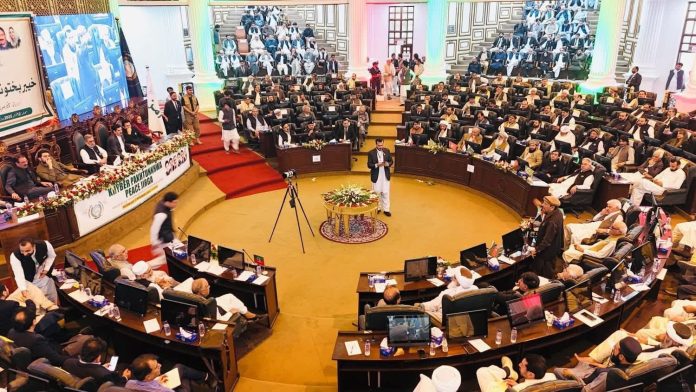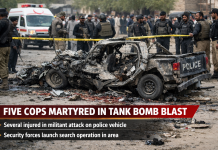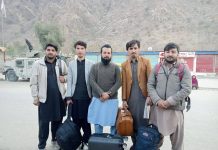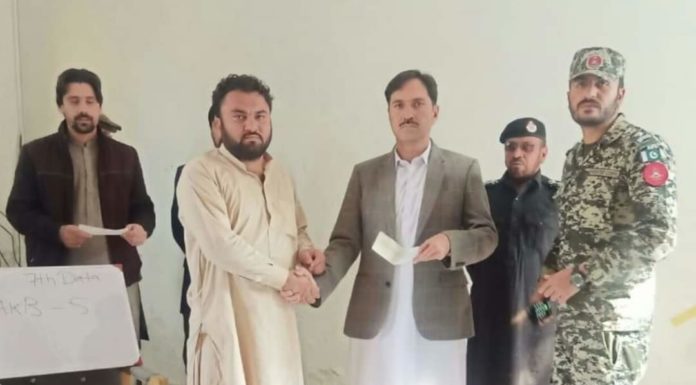By Ashrafuddin Pirzada
Peshawar witnessed a historic gathering as over thirty political parties, tribal elders, civil society members, journalists, business figures and religious scholars assembled at the Khyber Pakhtunkhwa Assembly for a provincial peace jirga aimed at finding a comprehensive solution to the decades-long scourge of terrorism.
The jirga reflected the province’s frustration over repeated cycles of violence, failed negotiations and short-lived security operations. Chief Minister Sohail Afridi, addressing the assembly, emphasized that terrorism has long been a destructive force in Khyber Pakhtunkhwa and that closed-door policies alone cannot eradicate it. He stressed the need to bring all stakeholders on board, urging, “We must think out of the box and involve every stakeholder so that terrorism can be eliminated once and for all.” Afridi added that counterterrorism strategies must be long-term and continuous, rather than short-term measures, in order to prevent the resurgence of militancy. He highlighted the human cost of terrorism, noting that civilians, politicians and security personnel alike have sacrificed their lives for the cause of peace.

Afridi also drew attention to the necessity of socio-economic development in the merged tribal districts as a tool to counter radicalization. He remarked that providing jobs and opportunities would prevent youth from being drawn toward extremist networks. He welcomed the recent Pakistan-Afghanistan dialogues, describing them as “positive steps supported by all political parties” and suggesting that joint jirgas on both sides of the border could strengthen mutual understanding. Afridi reiterated that Pakistan’s relations with Afghanistan should be nurtured and that war should always remain a last resort. He further stressed that the province needs policies which not only address immediate threats but also ensure continuity so that terrorism does not resurface.

Governor Khyber Pakhtunkhwa, Faisal Karim Khan Kundi, stressed that achieving peace requires a coordinated effort between the federal and provincial governments. He highlighted the importance of guiding the younger generation in the right direction and keeping politics aside when pursuing peace. Kundi emphasized that unity and collective effort at all levels of governance are essential to restore lasting stability.
Similarly, the Khyber Pakhtunkhwa Governor underscored that without political cohesion and strong cooperation with security forces, peace would remain an elusive goal. He noted that politicians often have to meet despite differences to address national crises and urged the provincial government to negotiate its constitutional rights with the federal government through reasoned dialogue.
Former Jamaat-e-Islami chief Siraj-ul-Haq asserted that history has proven that wars never bring victory. He cited Afghanistan and Gaza as examples where prolonged conflicts eventually led to negotiations out of necessity. He warned against advocating war between Pakistan and Afghanistan, saying that such calls would only destroy cities like Peshawar, Islamabad, Jalalabad, and Kabul.
Siraj recommended that the government send a peace jirga to Kabul under national supervision to foster dialogue and ensure that solutions are reached through negotiation rather than bloodshed.
Awami National Party senior leader Mian Iftikhar Hussain criticized the provincial government for failing to implement effective measures against terrorism despite being in power for thirteen years. He recalled that during 2008, when terrorism was at its peak, the ANP government had actively confronted extremists. Hussain urged learning from past mistakes and adopting clear, consistent policies to ensure cooperation from all stakeholders.
KP assembly speaker Babar Saleem Swati emphasized the immense human and economic cost of terrorism, highlighting that more civilians, police and security personnel have been martyred than terrorists themselves. He cited recent unrest in Bajaur, which displaced thousands of people and incurred financial costs of approximately Rs 2.5 billion for temporary camps and relief.
Former chief minister Mahmood Khan underscored the need to set aside political differences to pursue peace and suggested involving the Pakistan Army in coordinated efforts to ensure a sustainable solution. Tribal leader Khan Marjan Wazir emphasized the critical role of local tribes in establishing peace, noting the sacrifices his community has made. He recommended sending a jirga of Pashtuns to Afghanistan to strengthen cross-border harmony.
Muhammad Riaz, president of the Peshawar press club, reminded the jirga that negotiations and military operations since 2003 had failed to achieve tangible results and that addressing the root causes of terrorism, ideological extremism, lack of education, and poverty was imperative.
Lawmakers Mohsin Dawar and Junaid Akbar Khan warned that Khyber Pakhtunkhwa was once again becoming a battleground in the regional “great game.”
Mohsin Dawar says that the Taliban continue to operate courts and maintain influence in several areas outside of Peshawar and that negotiations with them would yield little because they aim to establish absolute power. Dawar urged the formation of a Truth and Reconciliation Commission to evaluate past counterterrorism efforts.
The jirga also featured speeches from figures such as Allama Raja Nasir, Aftab Ahmed Khan, Junaid Akbar Khan and prominent business personalities, who echoed the necessity of unity and concerted action to confront extremism.
Following hours of discussions, the jirga issued a comprehensive declaration. The declaration laid out fourteen points as a roadmap for peace and counterterrorism. It called for the provincial government and assembly to formulate a provincial action plan to combat terrorism, demanded the reopening of all traditional Pak-Afghan trade routes to restore economic stability, and urged that the provincial government be included in federal foreign policy consultations. The declaration also recommended measures to reduce tension between federal and provincial governments and insisted that meetings of the Council of Common Interests be held as per their constitutional schedule.
For security, the declaration stressed that police and the Counter-Terrorism Department take the lead in internal security operations. It also proposed an end to illegal taxation, extortion and illegal mineral extraction in conflict-affected areas. Security agencies were requested to provide in-camera briefings to the assembly regarding ongoing operations. At the provincial level, forums for peace, including non-government members, were to be established. Coordination among police, cantonment authorities and local government institutions was emphasized, alongside proposals for the removal of excessive check posts. Measures to ensure the financial and administrative stability of local governments were also recommended, including linking the National Finance Commission with the Provincial Finance Commission and ensuring the federal government clears dues owed to the province under constitutional provisions. Additionally, the declaration urged implementation of Article 151 to facilitate inter-provincial trade, ensuring the smooth transport of essential commodities like wheat to Khyber Pakhtunkhwa. The jirga stressed that all institutions must work collectively to maintain peace, social harmony and economic progress in the province.
While the jirga represented a significant and rare gathering of political and social consensus, doubts linger about its practical impact. Past peace conferences and jirgas in Swat, Waziristan and other areas have repeatedly failed to produce lasting results, with terrorism resurging due to weak implementation and political disunity. The success of the Peshawar Peace Jirga will depend on whether its comprehensive declarations are translated into action, whether the federal and provincial governments maintain cooperation and whether socio-economic development in conflict-prone areas is prioritized alongside security measures. Without sustained commitment, there is a real risk that this jirga could become another ceremonial event—costly in terms of time, money, and public expectations—rather than a turning point in Khyber Pakhtunkhwa’s struggle against terrorism.
Yet for the people who have endured decades of violence, the hope remains that this unprecedented gathering of stakeholders could, for the first time, bring lasting peace to the province. The jirga’s emphasis on development, coordinated governance and tribal inclusion provides a more holistic approach than previous efforts, and only time will reveal whether this ambitious blueprint will finally translate into concrete results for Khyber Pakhtunkhwa and the broader region.











